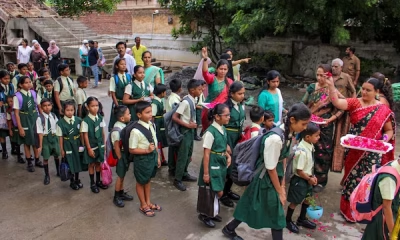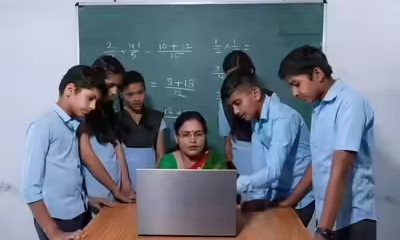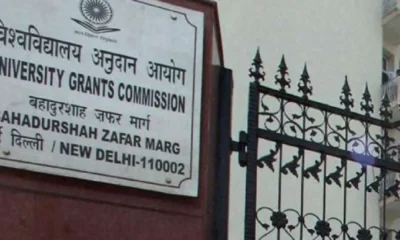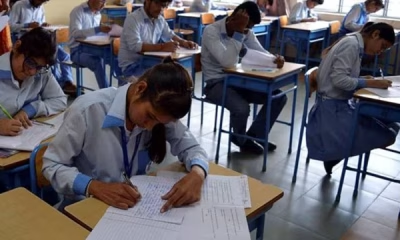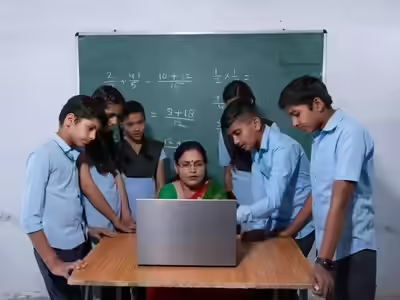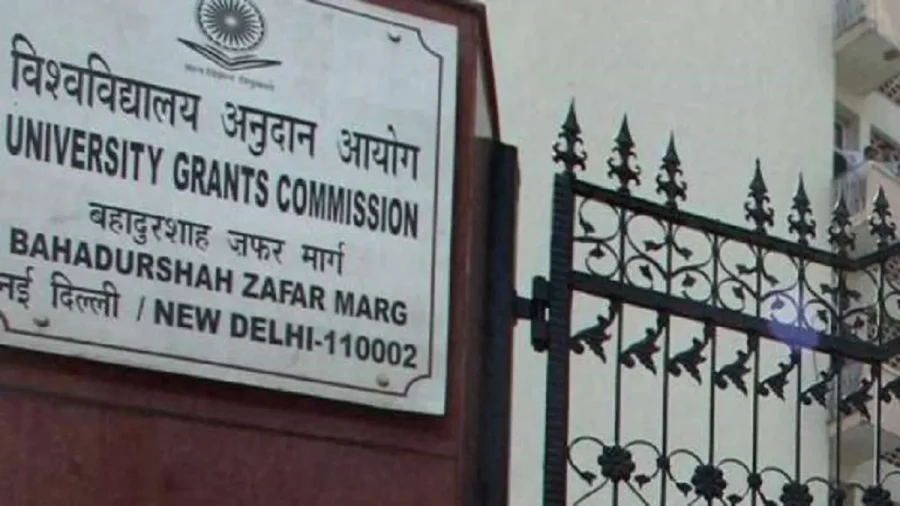After the meteoric rise of edtech during the pandemic, 2023 was a sobering year for the sector. The pandemic-driven surge in demand for online education, which fuelled unprecedented growth and funding, has since receded as schools and institutions reopened, leading to what many refer to as a “funding winter.” With a sharp decline in investments, the Indian edtech sector has been forced to reconsider its approach, prioritising sustainable growth and profitability over unbridled expansion. As 2024 unfolds, signs of a cautious recovery are emerging, with a renewed focus on innovation, funding challenges, and evolving educational models.
The Funding Landscape: A Fall from the Peak
In 2023, India’s edtech sector witnessed a steep decline in funding, dropping to about $712 million, a stark contrast to the $2.9 billion raised in 2022. The number of funding rounds in the sector also plummeted, from 364 in 2021 to just 69 in 2023. The peak funding year of 2021, when Indian edtech saw an influx of $2.48 billion in just one quarter, now feels like a distant memory .
The macroeconomic conditions, coupled with the shift back to offline education, have significantly impacted the industry. While the appetite for large deals has waned, late-stage investments saw a 94 per cent drop from 2021. Early-stage and seed funding have followed a similar trajectory, with early-stage funding in 2024 so far totalling just $40.4 million, a fraction of the sector’s 2021 peak .
Yet, despite the sharp decline, there are signs of resilience. The first half of 2024 has shown an improvement, with $164 million raised, marking a 96 per cent increase from the second half of 2023. However, this recovery is tempered by caution, with investors now prioritising business models that are sustainable and profitable.
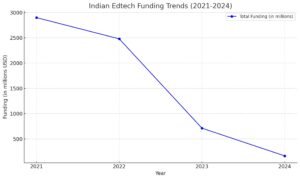
Source- Tracxn
Shifting Business Models: Adaptation for Survival
To survive this funding drought, many edtech firms have had to adapt, scaling back on rapid expansion plans, entering the brick-and-mortar space, and embracing new technologies such as generative AI. Others, like Byju’s and Unacademy, have resorted to mass layoffs as part of broader cost-cutting exercises to reduce cash burn. These adjustments highlight a sector coming to grips with its new reality – one where fiscal prudence outweighs the allure of rapid growth .
The demand for quality content, personalised learning, and upskilling remains strong, particularly in areas where traditional offline education fails to meet the needs of modern learners. As Dilip Gangaramani, Founder Director & CEO of Target Publications, notes: “I’ve witnessed firsthand the incredible journey from pandemic-fueled growth to subsequent challenges. While funding has ebbed and flowed, the industry has shown remarkable resilience. We’re seeing a shift towards sustainable business models, focusing on quality content and personalized learning. The evolving policy landscape presents exciting opportunities, and innovative thinkers continue to drive the field forward. Despite the challenges, there’s a bright future for edtech. The industry’s ability to adapt and innovate will determine its enduring success.”
Navigating Policy Changes and Emerging Technologies
The policy landscape for education in India is also undergoing transformation. With the National Education Policy (NEP) pushing for more inclusive and flexible education models, the edtech sector has an opportunity to integrate innovative learning tools within the formal education system. Generative AI, in particular, is seen as a game-changer, with immense possibilities for customising education and making learning more interactive and adaptive.
Harpreet Randhawa, AGM-Education at Radius Systems Pvt Ltd, highlights how Apple’s education solutions are shaping the future of Indian classrooms: “As an education specialist for Apple Education at Radius, I see firsthand how the Indian Ed-tech sector is rebounding from pandemic-driven funding challenges, with K12 education evolving rapidly in 2024. Apple remains a key player in this transformation, offering innovative tools that empower both students and educators to excel in dynamic learning environments. With a focus on creativity, collaboration, and personalized learning, Apple equips classrooms to address the demands of an ever-changing world. By delivering adaptable, future-focused technology, we continue to support schools in overcoming funding limitations and fostering innovation, ensuring learners are prepared for success in the digital age.”
Mergers, Acquisitions, and Consolidation
The funding crisis has also led to consolidation within the sector, with mergers and acquisitions (M&As) serving as an escape route for many struggling startups. However, the number of M&As in 2023 fell drastically, with only seven acquisitions compared to 23 in 2022 . This decline suggests that while consolidation is a viable strategy for some, others are finding it increasingly difficult to attract interest from larger players or investors. To add to this, Gaurav Goel, Founder & CEO, Toprankers said “After the pandemic-induced boom, the industry faced a funding crunch that truly tested our resilience. However, 2024 is bringing renewed optimism. The sector is adapting, finding balance between digital innovation and sustainable growth. We’re embracing hybrid learning models, focusing on personalized student experiences, and aligning closely with new education policies. While challenges persist, we’re on the right trajectory. The future is about creating accessible, quality education for all, and with resilience and innovation, Indian EdTech is poised to thrive.”
The Road Ahead: Opportunities and Challenges
Despite the challenges, there is still optimism for the sector’s future. The need for professional upskilling and reskilling remains high, particularly as the job market becomes increasingly competitive. Companies that can offer innovative, cost-effective solutions to these demands are likely to find success, even in a constrained funding environment.
“EdTech companies in India are adjusting to changing learning needs. While funding issues are gradually improving, the key question remains: how do we turn the intention to reform education into a meaningful impact? For years now, the call for educational change has been the same, and while the need to improve is evident, the challenge lies in creating real momentum. There’s no shortage of effort or political will, but turning intent into action is the real hurdle that Edtech companies must look at addressing.” says Swati Gauba, Thinker-in-chief, Kidspreneurship.
As we look ahead to 2024, the Indian edtech sector’s next chapter will be defined by careful navigation of the funding landscape, adoption of new technologies, and alignment with evolving educational policies. While the boom may have passed, the sector’s ability to innovate and meet the needs of modern learners ensures its continued relevance in the post-pandemic world.
Sources- The Hindu Business Line, Business Standard, Tracxn Feed Geo Report: Edtech India 2024
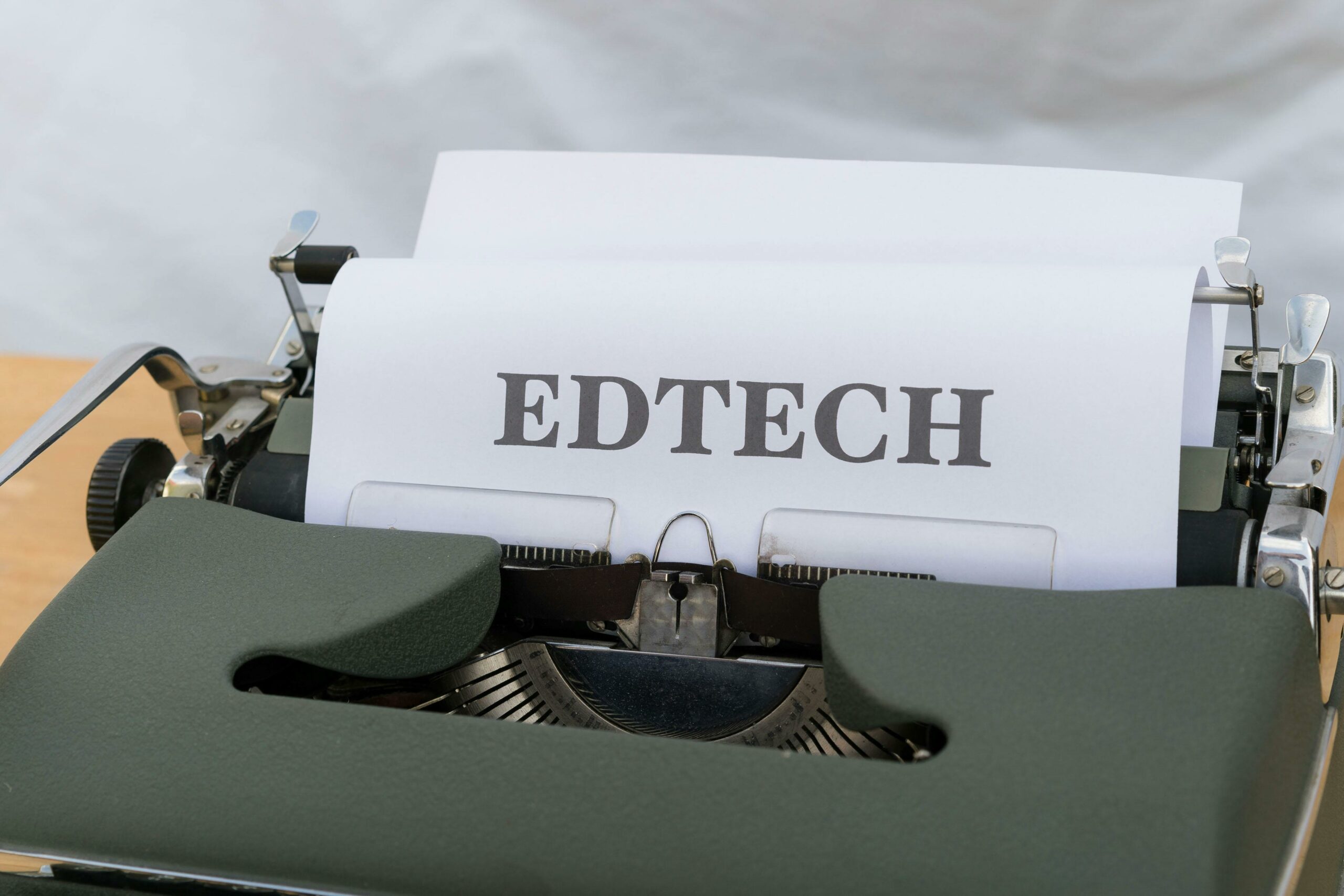
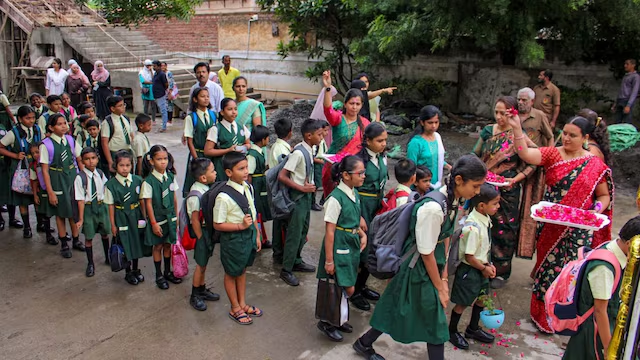



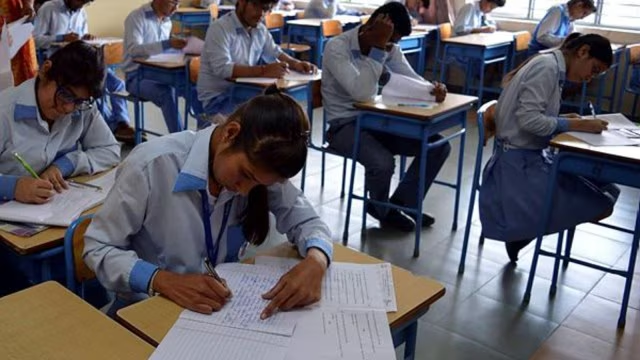
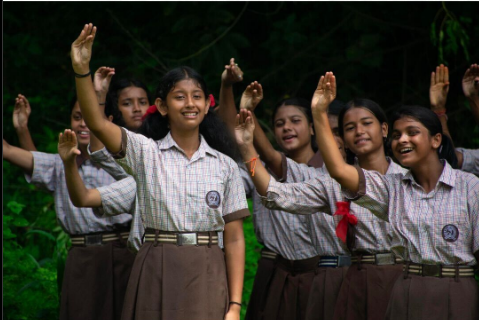
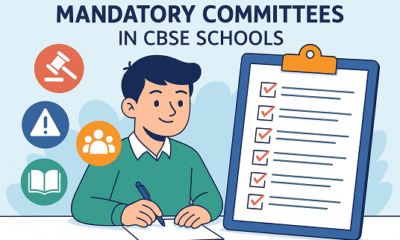
 Education3 months ago
Education3 months ago
 Education2 months ago
Education2 months ago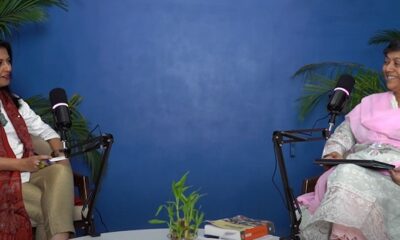
 Education3 months ago
Education3 months ago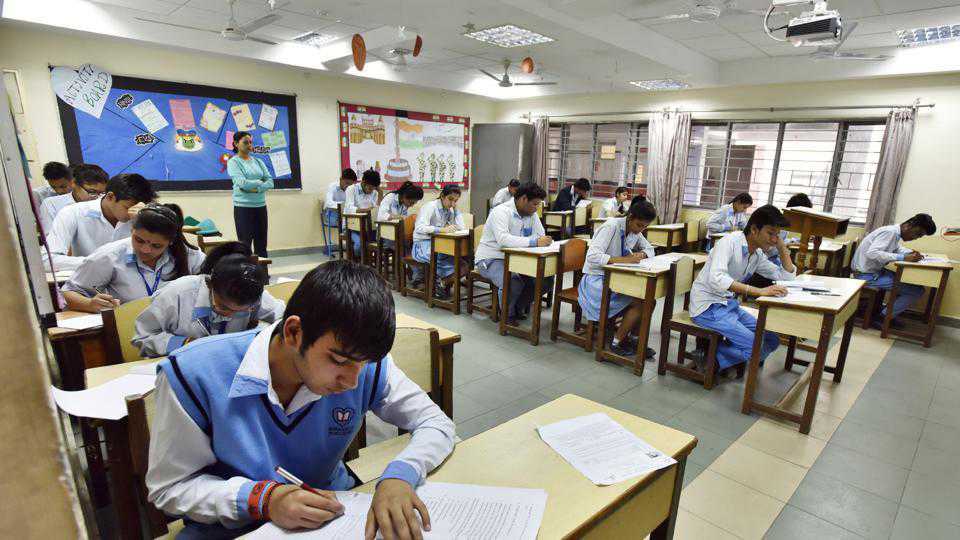
 News3 months ago
News3 months ago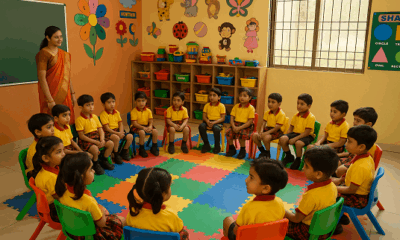
 Education2 months ago
Education2 months ago
 Education3 months ago
Education3 months ago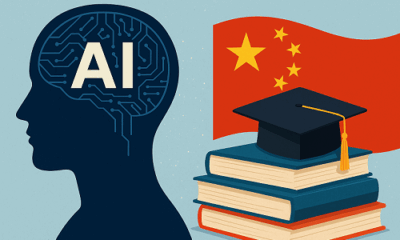
 Education3 months ago
Education3 months ago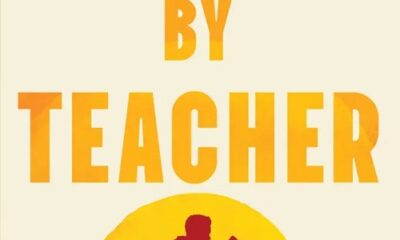
 Education2 months ago
Education2 months ago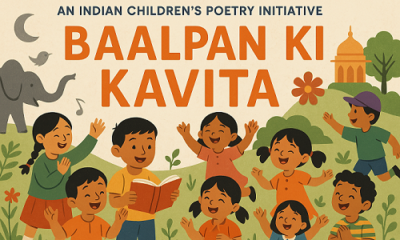
 Education3 months ago
Education3 months ago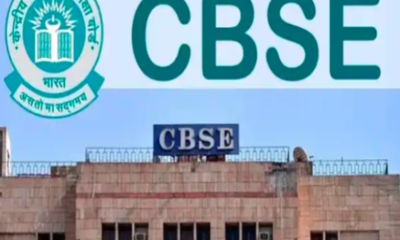
 Education2 months ago
Education2 months ago




